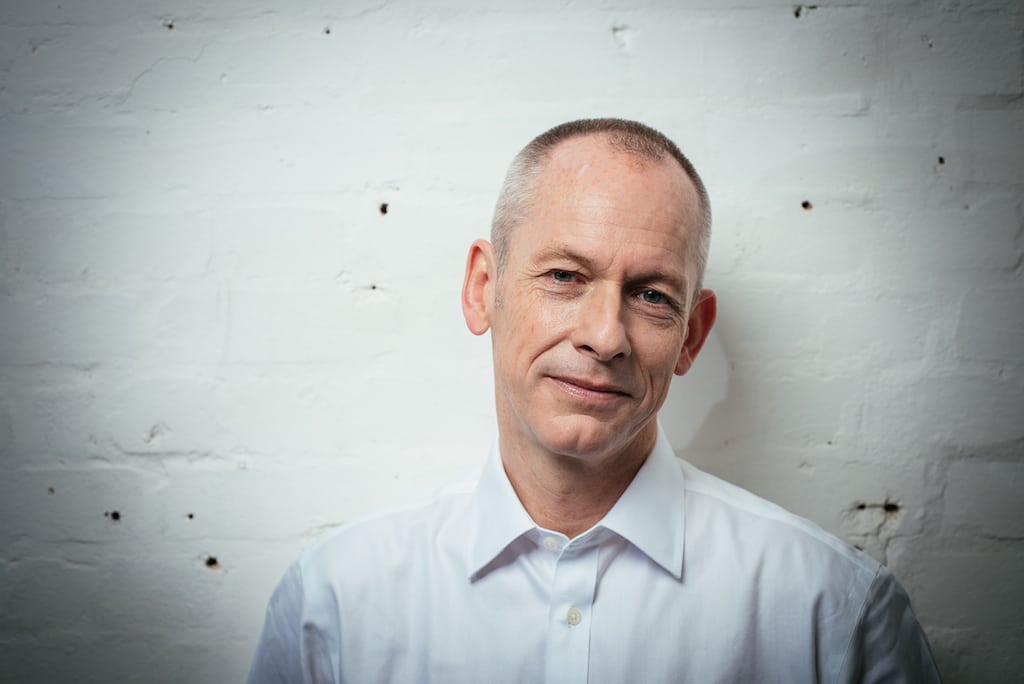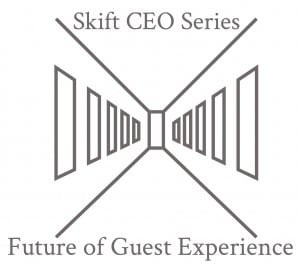Skift Take
Knowing exactly who a hotel brand's customer is gives it the freedom to build events and an an ambiance just for them, without fear of turning off smaller demographic groups.
Editor’s Note: This interview is part of Skift’s CEO interview series. This particular series is with hospitality CEOs talking about the Future of the Guest Experience and the evolving expectations and demands of hotel guests. Check out all the interviews as they come out here. Also, enjoy the previous series on the Future of Travel Booking, with online travel CEOs.
Generator Hostels has become the poster child of a new breed of design-aware and budget-friendly hostels that offer an upgraded experience by pairing locally inspired design and style with large common areas, free Wi-Fi, and a range of shared and privates bedrooms.
The group recently announced $75 million in capital investment, which will be used to further fuel its global growth. Generator currently has properties across six European cities with three new spaces slated to open in 2015 and plans to open in the U.S. in the near future.
Generator executive chairman Carl Michel recently spoke to Skift about catering the guest experience to a primarily millennial audience, what role content plays in building brand awareness, and surprising shifts in guest behavior. An edited version of the interview is below:
Skift: What are some of the biggest challenges that you’re facing to improve the guest experience today?
Carl Michel: Our design-hostel formula is very much targeted toward millennial travelers between 18 years old and 35 years so one of the biggest challenges is simply understanding the mindset of the millennial traveler, which is much more about the overall social experience of traveling and hospitality than simply hard product features. It’s about how the brand interacts with the person, how the events drive the experience, how the whole atmosphere has to be curated to create an optimal experience. It’s learning about a very different sort of consumer in comparison to somebody who wants to know that there’s a 28-inch TV and a pair of floppy slippers in the cupboard.
Skift: In catering to that millennial traveler, is there a certain element of the guest experience that takes priority over others or one that you’re particularly focused on?
Michel: I would say it’s about creating genuinely shareable moments. People want to travel, but because of the way the social blogosphere is working now, they also want to share their experiences widely with their friends. You have to create things that are genuinely shareable. It could be some amazing design features in the hostel or it could be some really cool events that they can talk about and connect with. It’s creating quite distinctive things rather than just a general warm feeling. It’s got to be something that is really memorable so that people will come back to it again and again and feel encouraged to share it.
Skift: Are events something that are being integrated into the guest experience? It’s no longer about just giving guests a bed and shower, but activities at the hotel?
Michel: Absolutely. A Generator Hostel has about 700 beds so it’s a very large space. Each of our hostels have an event coordinator and that person is charged with bringing in music, art, fashion, design, and things from the city into the hostel to create a really vibrant series of activities throughout the week. There is a bit more of a focus on the weekends, but there’s stuff to do in the hostel across the week.
Skift: What role does technology play in improving the guest experience? Is either consumer-facing or back-end technology more important to improving the guest experience?
Michel: It’s a bit of both. Clearly you need to provide content through your websites about what’s going on and what the cool things to do are. You need a consumer-facing side that is very up-to-date, but what is actually pivotal here is having excellent and renewed visual content: Videos and photos. Millennials don’t reach that much anymore. They like to see and sense things so you have to be really lively in having, whether it’s on Instagram or Flickr or Tumblr, a lot of new content almost on a daily basis, to kind create an experience. That’s relatively straightforward and doesn’t have a lot of technology to it.
On the back end, we’re looking at things like automating the registration and check-in process to speed it up. It will be something that improves the guest experience. Our guests are not clamoring for it, but it does give our staff more time to do the things that we care about and that our guests care about. Rather than spending a long time checking in someone, we want to make it a quick, seamless process so our staff can spend more time talking to guests about cool things to do in the city.
One of the downsides of the automation process is that it takes away the human interaction, which we think is a very key part of our brand and a key part of the experience that millennials want. They want to talk to people and meet people. Unlike an airport where people say, “I want a seat,” or “Get me through the airport quickly,” what we want to do is facilitate more time to talk to people by having less time spent on the boring registration piece. It’s not part of our intention to move away from human interaction, far from it. We think that’s a mistake.
The other thing I should mention is that we have invested in upgrading our Wi-Fi across all of our hostels. It’s has to be fast, because people are streaming more, and it has to be free, obviously. We wouldn’t dream of charging for Wi-Fi and I think hotels that do are, frankly, on the way out.
Skift: Talking about the interaction with staff, how has the hiring experience changed or evolved over time to match the changes in the guest experience or guest expectations?
Michel: It’s evolved in the sense that what we’re looking for now are more city-ambassador types, people who really understand their city, know the cool places to see, and are sort of connected in the cultural scene. There are obviously still certain functions where you need technical expertise, but for the concierge and check-in staff, we’re looking for people who really love their city and want to share it with strangers. When you arrive at a Generator, we would like you to feel like you’re going to get to know the city as only the locals do.
Skift: Has it proved difficult or easy to find hospitality-trained employees who can also serve as local insiders? What’s the process for vetting someone?
Michel: It’s gotten easier as we’ve gone along. We operate in a lot different countries and it varies from country to country is the simple reality. In certain markets like Ireland or Denmark it’s actually been quite easy. It’s a little harder in some of the Mediterranean countries where they’re a bit more strict on hospitality training. It takes a little longer to get people to open up and understand that it isn’t just a hotel background that matters, that i’s about having a graphs on how the city works. The answer is trial and error, and it takes a little bit longer in certain markets, but we’re getting there everywhere. I’m confident of that.
Skift: This question will be a bit different for a hostel in comparison to a hotel, but what are your views on the increase in hotel fees that are being levied against guests at major hotels?
Michel: In our hostels, you will pay for the bed and we make it absolutely clear in advance that that doesn’t include breakfast, so that’s extra. The Wi-Fi is free. There isn’t usually parking because our guests arrive by public transit. Most of the hotels are taking a lead out of the airline books, trying to create more profit, and I think, as long as it’s upfront, it’s kind of up to the guest to work out the total cost.
If you can’t add up numbers or you’re comparing apples and oranges as the cost then that’s your problem. Generally, I think, guests appreciate the honesty and they like to know exactly what they’re getting for what they’re paying for. If you don’t want something then you shouldn’t pay for it. That seems to be fairly straightforward. At Generator, it’s very simple. Everything is free except food and beverage.
Skift: What’s one unexpected shift that you’ve seen in guest expectations or demands in the past few years or decade?
Michel: A new thing that’s quite interesting to me is that guests are using their mobile and tablet devices way ahead of the purchase decision now. In the past, guests would book on their mobile phone because they were arriving in city and didn’t have anywhere to stay. Now they’ll actually do the entire booking experience on their mobile device. That goes back to the essential of having a fully responsive site. Also, millennial’s will essentially not bother with email so you have to focus on social media to communicate. Forget email.
Skift: How has social media and visual content changed the conversation that Generator is having with its customers?
Michel: We’re a discovery brand so the conversation is less about talking about hard product attributes, which we used to do, and is more about talking about the environment and the mood and making people see that your brand is an extension of their personality. We use content to say, ”We like you. We understand you.” The content has shifted away from a very direct sell of hard attributes to a softer mood and feel.
It absolutely has to be visual. Short videos, not too long because people don’t have attention spans of more than a few minutes, or great photography. We usually use user-generated content, but sometimes we use our own photographers will capture the mood of a party. Images tell people much more than can be said with words.
Skift: What’s the creation process for the content? Does Generator have an in-house team that’s creating it or do you work with local insiders in the different destinations?
Michel: It’s an absolute mix. When you’re opening a new property, you have to have your in-house team because you have yet to have guests to photograph it. Later on, we like to use local bloggers. Bloggers are actually brands in their own right. They’re like a wrapper around our product, because bloggers have followers, and if a blogger endorses your product then that’s a great way to get good connections or make you go viral quickly. Once you’ve got the bloggers moving then you get the guests coming in and, sometimes, they’re good at creating great content too.
We like the rawness and the authenticity of user-generated content, we’ll augment it with bloggers or our content as we go along. It also costs more to do your own stuff and less to get guests to do so it’s about budgets as well. Instagram is becoming much, much more prevalent so it’s about creating the right parties and events that people will photograph and talk about. If you create the right atmospheres and moments then those tend to get share on social media.
Have a confidential tip for Skift? Get in touch
Tags: design, foge, generator, hostels
Photo credit: Generator executive chairman Carl Michel. Mike Massaro / Generator Hostels

